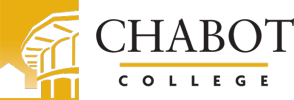
Anthropology
This program map from the 2024-2025 catalog year represents one possible pathway to complete this program. Your pathway may vary depending on your transfer plans and also previous college credit, including AP Test scores, concurrent enrollment courses and high school articulated courses.
I'm ready to get started. What do I do next?
- Review this program map to get an overview of the required courses
- Meet with a counselor to develop your customized student education plan www.chabotcollege.edu/counseling
- Use DegreeWorks, an online student education planning tool, to track your progress toward graduation www.chabotcollege.edu / admissions / degreeworks
Anthropology is the study of all of humanity across time and location, from our beginnings 250,000 years ago to the present. Our closest living relatives are also part of our study (chimpanzees, gorillas, & orangutans); as well as other extinct human species such as Neanderthals and Homo erectus. We are interested in studying all aspects of humanity, including topics such as race and ethnicity, religion and witchcraft, sex and gender, to give some examples.
An AA Degree in Anthropology studies humans by working with other disciplines like Psychology, Sociology, Biology and many more in order to have a complete picture of humanity as a whole. Emphasis is placed on biological and cultural diversity, on the interaction between humans and their physical and social environment, and on the evolution of human biological and cultural adaptations. The core courses introduce students to four of the sub fields of Anthropology: Biological Anthropology, Social Cultural Anthropology, Archeology and Linguistic Anthropology. Students can then focus on their area/s of interest by taking additional courses. A two-year associate degree provides students with an introduction to the discipline's theories and practices, & serves as a solid foundation for entry into a bachelor's anthropology degree program.
What can I do with this major?
Due to the fact that anthropology studies all of humanity, anthropologists can seek careers in fields related to humanity. Depending on their focus and schooling, anthropologists can pursue jobs in areas such as:
- Medical Field (Doctor)
- Law (Layer)
- Education (Teacher)
- Law Enforcement (Police)
- Politics
- Business
- Research
- Administration/Management
- Forensics
- Archaeologist
- Art
- Music,
- Immigration
- Social Justice
Learning and Career Pathway
- Social Sciences, Humanities & Education
Icon Key
Semester 1
List A Course
List B course
English 1- Critical Reading and Composition
Semester 2
ANTH
1
Biological/Physical Anthropology
ANTH
1L
Biological/Physical Anthropology Laboratory1
List A Course
General Education Course- see a counselor to choose the appropriate general education pattern and general ed course option for this term.
Math Course for General Education: see a counselor to choose the appropriate course. PSY 5 is recommended.
Semester 3
ANTH
2
Introduction to Archaeology
List B course
General Education Course- see a counselor to choose the appropriate general education pattern and general ed course option for this term.
General Education Course- see a counselor to choose the appropriate general education pattern and general ed course option for this term.
General Education Course- see a counselor to choose the appropriate general education pattern and general ed course option for this term.
Semester 4
General Education Course- see a counselor to choose the appropriate general education pattern and general ed course option for this term.
General Education Course- see a counselor to choose the appropriate general education pattern and general ed course option for this term.
General Education Course- see a counselor to choose the appropriate general education pattern and general ed course option for this term.
Elective- see a counselor to choose a course that counts for elective units (can be any credit course).
Elective- see a counselor to choose a course that counts for elective units (can be any credit course).
List A
Take two courses from the following list (6 units)
ANTH
4
Language and Culture
ANTH
5
Cultures of the U.S. in Global Perspective
ANTH
8
Native American Cultures1
ANTH
12
Magic, Religion, Witchcraft and Healing
ANTH
13
Forensic Anthropology
List B
Take two courses from the following list (6-10 units). Many courses on this list may also fulfill general education requirements. See a counselor to choose the best course.